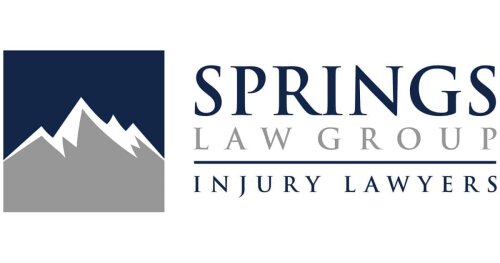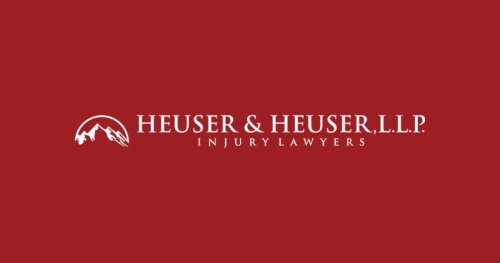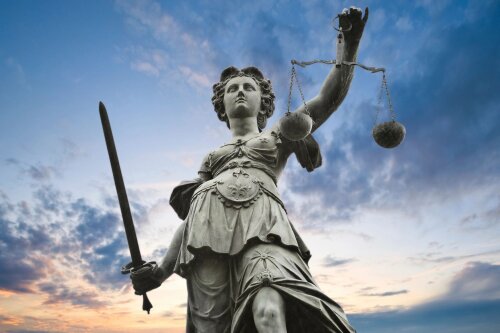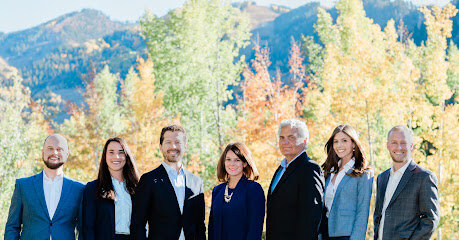Best Defamation Lawyers in Colorado
Share your needs with us, get contacted by law firms.
Free. Takes 2 min.
Or refine your search by selecting a city:
List of the best lawyers in Colorado, United States

About Defamation Law in Colorado, United States
Defamation in Colorado refers to a false statement that is communicated to others and harms a person’s reputation. Defamation law in the state is intended to protect individuals and businesses from untruthful and damaging statements, whether spoken (slander) or written (libel). Defamation cases can arise online, in newspapers, on television, at work, or in day-to-day conversations and can have serious legal and financial consequences. Colorado’s defamation law is shaped by both state statutes and court decisions, and by protections outlined in the US Constitution, such as the First Amendment.
Why You May Need a Lawyer
A defamation lawyer can help you understand your rights and evaluate whether you have a legitimate case. Here are common situations where legal assistance may be necessary:
- You believe someone has made a false and damaging statement about you or your business, and you want to pursue legal action.
- You have been accused of defamation and need to defend yourself in court or in settlement negotiations.
- You are concerned about statements in the media, online reviews, or on social media that might harm your reputation.
- You need help removing defamatory content from the internet or correcting the public record.
- You are a business owner affected by false statements harming your commercial interests.
Local Laws Overview
Colorado law recognizes two types of defamation: libel (written or published statements) and slander (spoken statements). To establish defamation in Colorado, a plaintiff typically must prove:
- A statement was made to someone other than the person defamed.
- The statement was false.
- The statement caused harm to the reputation of the person or business.
- The party making the statement acted with at least negligence regarding its falsity.
- Truth - a true statement cannot be defamatory.
- Privilege - certain communications, like those made in court, are protected.
- Opinion - expressions of opinion, rather than statements of fact, are generally protected.
Frequently Asked Questions
What is the difference between libel and slander in Colorado?
Libel refers to defamatory statements that are written or otherwise published, while slander refers to spoken defamatory statements. Both can be the basis for a defamation lawsuit in Colorado.
Do I have to prove intent to defame to win a case?
If you are a private individual, you usually only need to show that the defendant was negligent in determining the truth of the statement. Public figures must show that the statement was made with actual malice.
Can I sue for defamation if someone insults me online?
Mere insults or opinions, even if offensive, are typically not considered defamation. To qualify, the statement must be presented as fact, be false, be published to a third party, and cause harm.
How long do I have to file a defamation lawsuit in Colorado?
The statute of limitations for defamation in Colorado is generally one year from the date of the allegedly defamatory statement.
What damages can I recover in a defamation case?
You may be entitled to compensation for actual harm to your reputation, lost earnings, and potentially punitive damages if the conduct was egregious. In some instances, you may also ask for a retraction or public apology.
What defenses are available against a defamation claim in Colorado?
Common defenses include truth, opinion, privilege, consent, and lack of harm. If the statement is true or is clearly presented as an opinion, it is generally not actionable.
Can statements made on social media or review sites be defamatory?
Yes, statements published online can be grounds for a defamation claim if they meet the legal requirements, including falsity and reputational harm.
What is "actual malice" in defamation law?
Actual malice means that the statement was made knowing it was false or with reckless disregard for its truth. This higher standard applies to cases involving public figures and officials.
What should I do if I am accused of defamation?
You should consult with a defamation attorney immediately to assess the validity of the claim, explore defenses, and determine the appropriate response to avoid escalation.
Can businesses sue for defamation in Colorado?
Yes, businesses can file defamation claims if false statements are made that harm their reputation or cause economic loss. The legal requirements mirror those for individuals.
Additional Resources
If you are seeking more information or support related to defamation in Colorado, the following resources may be helpful:
- Colorado Judicial Branch - Information on civil cases and court procedures.
- Colorado Bar Association - Offers lawyer referral and legal guidance services.
- Better Business Bureau - For business-related defamation and complaints.
- American Civil Liberties Union (ACLU) of Colorado - Provides information on First Amendment and free speech issues.
- Local legal aid societies - For those who need legal help but cannot afford a private attorney.
Next Steps
If you believe you are involved in a defamation issue in Colorado, consider taking these immediate steps:
- Document the statement in question, including where and when it was made or published.
- Collect evidence of the harm caused, such as lost business, job consequences, or emotional distress.
- Identify potential witnesses or records that support your position.
- Consult with an experienced Colorado defamation lawyer, as most offer initial consultations to review your situation and explain your options.
- Act promptly to ensure you do not miss important deadlines, such as the one-year statute of limitations to file a claim.
Lawzana helps you find the best lawyers and law firms in Colorado through a curated and pre-screened list of qualified legal professionals. Our platform offers rankings and detailed profiles of attorneys and law firms, allowing you to compare based on practice areas, including Defamation, experience, and client feedback.
Each profile includes a description of the firm's areas of practice, client reviews, team members and partners, year of establishment, spoken languages, office locations, contact information, social media presence, and any published articles or resources. Most firms on our platform speak English and are experienced in both local and international legal matters.
Get a quote from top-rated law firms in Colorado, United States — quickly, securely, and without unnecessary hassle.
Disclaimer:
The information provided on this page is for general informational purposes only and does not constitute legal advice. While we strive to ensure the accuracy and relevance of the content, legal information may change over time, and interpretations of the law can vary. You should always consult with a qualified legal professional for advice specific to your situation.
We disclaim all liability for actions taken or not taken based on the content of this page. If you believe any information is incorrect or outdated, please contact us, and we will review and update it where appropriate.
Browse defamation law firms by city in Colorado
Refine your search by selecting a city.










